winners
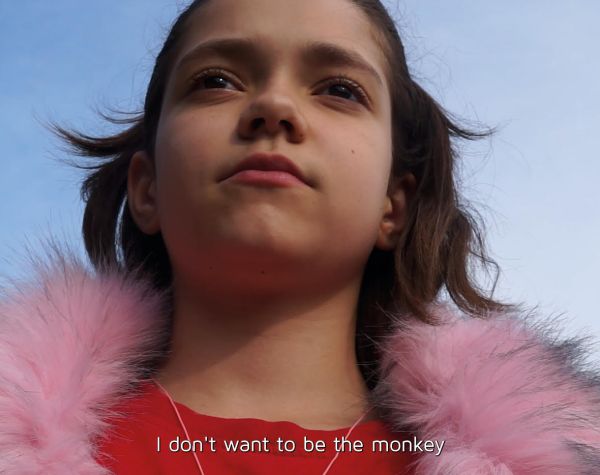
Becoming Outline
It started with an autobiographical art project. Miriam Bajtala used the floor plans of the 18 apartments she had lived in until now. They served as canvases on which she used words and colors to transfer her memories of the given space as well as the disadvantageous socio-economic factors that shaped her as a woman and a foreigner. In the confrontation she had begun with her own family history, the author is now continuing the film, which is fiction, documentary and performance. Different spaces and dimensions of existence – national, class, gender – are constantly layered on top of each other and rearranged in it. The result of the act of visualization and updating becomes a spatial curriculum vitae. “My experiment of creating a conceptual coming-of-age film.” — Miriam BajtalaSource: sixpackfilm
director: Miriam Bajtala
original title: Becoming Outline
country: Austria
year: 2024
running time: 70 min.
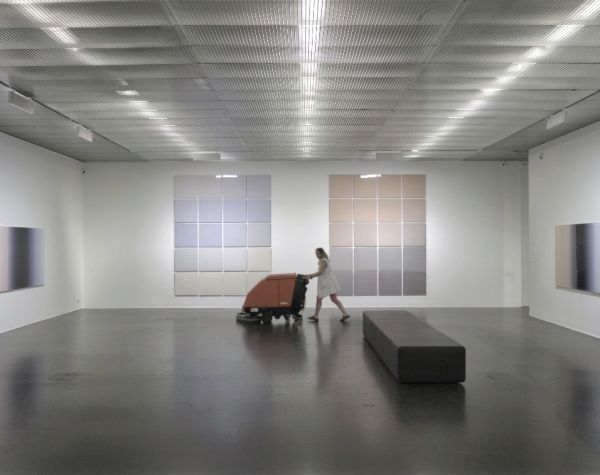
Cleaning & Cleansing
Static shots, mostly long and extreme long shots, and not much seems to happen in them. As if someone often turned the camera on only after the important thing had already been done – in moments when cleaning crews and almost always invisible women with dusters, mops and buckets arrive. When is it necessary to prepare everything for the next round of operation and use under conditions that we have come to perceive as healthy. The minimalist observational documentary lets us glimpse the different forms of how human culture gets rid of dirt and other deposits. Starting with hand washing in healthcare, through various manifestations of mental hygiene and sacred rituals, to cleaning in Holocaust memorials, it is always the same cyclical process. It is the necessity and self-evident nature of the actions accompanying purification that make them a social force of fundamental importance. Above the associative sequence of slow images of cleaned places and washed people, we can reflect on the symbolic and pragmatic meanings of everyday rituals, without which our civilization would collapse.“In my opinion, the current effort is mainly to achieve efficiency and productivity in the neoliberal sense of the word. After that, however, any colour and variety disappears.”Quote source: International Film Festival Bratislava
director: Thomas Fürhapter
original title: Cleaning & Cleansing
country: Austria
year: 2024
running time: 91 min.
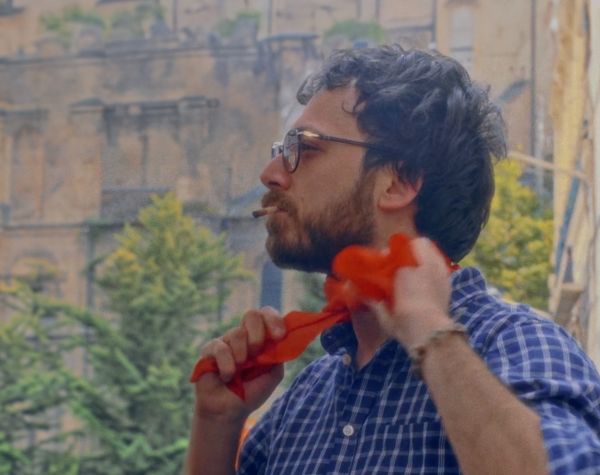
Comrades
Simone, Francesca and Olivia are three young people from Bologna who are members of the Communist Renewal Party. Full of life, they take part in demonstrations and party meetings and believe that they can change the current world, dominated by ruthless capitalism and pressure for performance, for the better. At least until the moment when it turns out that it is almost impossible to change the minds of the older party members and the unsuccessful attempts to win new supporters intersect with the difficulties in their personal lives. Comrades is an empathetic time-lapse portrait that shows how the current young generation is losing its illusions due to social pressure and turbulent internal changes, and how difficult it is to keep faith in what we believe makes sense.“By telling the stories of Olivia, Francesca and Simone, I try to show topics shared by many 20-30-year-olds: overstimulation, confusion, and awareness of social inequalities, accompanied by a difficulty in translating their good intentions into actions that bring about real change.” — Joanna JanikowskaQuote source: CineLink Industry Days
director: Joanna Janikowska
original title: Towarzysze
country: Poland, Italy
year: 2024
running time: 61 min.

Echt – The Art of Jan Merta
Jan Merta (1952) is currently one of the most important Czech visual artists. In his painting work, shaped by the postmodernism of the 1980s, he leans towards abstract abbreviation and symbolic depiction of reality through everyday objects. The film is a snapshot of his life filled with painting, working in his garden and cohabitation with his partner. The civilian camera follows Merta as he prepares an exhibition for which he attempts to create new works. However, his engagement with the current geopolitical situation enters into the work, as well as the discovery of new compositional principles and creative otherworldliness that co-create his enchanted personal world. “Is this art, or can I throw it away?”
director: Tomáš Merta
original title: Echt – Film o malíři Janu Mertovi
country: Czech Republic
year: 2024
running time: 70 min.
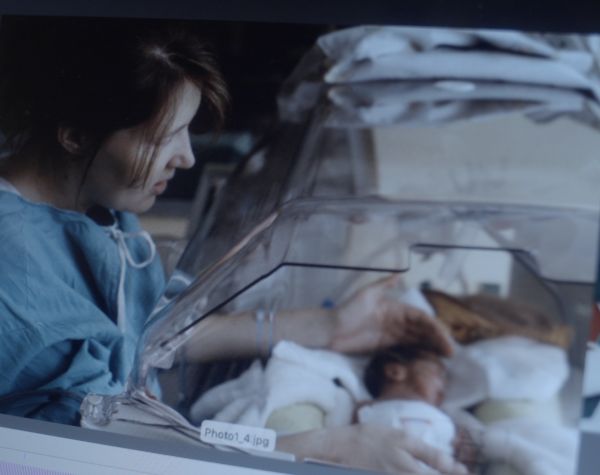
Grey Zone
Some doctors refer to the situation of babies born long before term as a grey zone. At 24 weeks, the fetus is not yet legally perceived as a full human being and the pregnancy can be terminated prematurely. This introspective documentary puts us in the position of a mother inextricably linked to her child who, directly from birth, is given only slim chances of survival by the doctors. The film's tribute to mothers and families of premature babies stands out for the harrowing yet disarming honesty with which the director speaks of her own feelings of fear, humiliation, hopelessness, and hope as her son makes further progress. “Through the intimate confession of a mother, the documentary portrays the often traumatic reality of premature birth, the special care for a premature newborn or later a child with special needs or disabilities.” Source quote: Film profile at AVF
director: Daniela Meressa Rusnoková
original title: Šedá zóna
country: Slovakia
year: 2024
running time: 75 min.
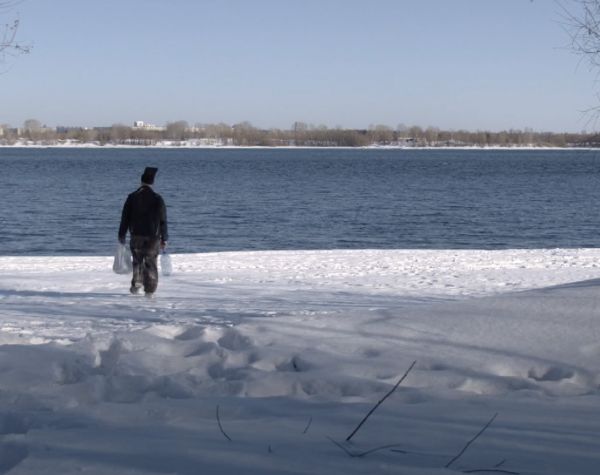
Happiness to All
Vitaly, a nuclear physicist and record holder in extreme cold-exposure training, makes his living as a bricklayer and lives below the poverty line. While his parents, prominent scientists, reminisce about the glory of the regime they willingly built, the avowed patriot from Novosibirsk is gradually changing his mind about Putin's Russia. He rejects its capitalist nature and continues, as a radicalised blogger, to advocate the establishment of a juster regime. This intergenerational clash is typical of the countries of the former Soviet Bloc. While the older generation remembers the certainties and advantages of the past regime, the younger one is hopelessly mired in a crisis of authority, rejecting past and present political representation and resorting to extreme views. Like everything else in his life, Vitaly is experiencing his political awakening in an extreme way as the son of elites relegated to the social periphery after the collapse of the empire. This time-lapse character study, filmed between 2016 and 2024, depicts how long-term frustration and disillusionment lead entire generations and social classes to gravitate towards radical solutions and vote for authoritarian leaders like Putin, Trump or Le Pen. “I'm not afraid of a coup; I'm looking forward to it. Any change will be for the better, because it can't get any worse.”
director: Filip Remunda
original title: Štěstí a dobro všem
country: Czech Republic, Netherlands, France
year: 2024
running time: 96 min.

Hopeful Visitors and Grieving Guides: Notes from the Travel Notebook of a Dark Tourist
The tourist appeal of ethically problematic destinations is a phenomenon known as dark tourism. The filmmakers' itinerary for their tour of Norway included sites such as the robust sculptures of Gustav Vigeland, criticised for their proximity to Nazi aesthetics, wind farms making Sami pastures inaccessible, and the island of Utøya. Using performative and post-production gestures, they have attempted to come to terms with the plight of dark tourists.
director: Jiří Žák, Matěj Pavlík
original title: Nadějní návštěvníci a truchlící průvodci: Zápisky z cestovního deníku temného turisty
country: Czech Republic
year: 2024
running time: 12 min.

In Praise of Shadows
Inspired by Junichiro Tanizaki's literary essay of the same name, the film is a visual ode to the shadow and its perceived marginality and necessity for living in the light. In traditional Japanese houses, there are spaces dedicated to the sun and places shrouded in the cover of darkness. The form of shadow is modelled by means of permeable materials, deliberate obstructions, or even candle flames, so different from Western mass-produced products. The transformation of shadows with the movement and intensity of light is analogized by the director to celluloid photography and film. Unlike modern digital technology, they are also subject to change as the passage of time affects their chemical stability. Without the shadows cast on the projection screen, we would not be able to watch this film either, reliving a feeling already familiar to prehistoric cavemen sitting around a campfire. “Fleeting shadows ebb and flow in a glistening half-light, an enchanted dreamlike state that reflects on our place in the world, the passage of time, and the very essence of life and its fragility.”Quote source: F3M
director: Catherine Martin
original title: Éloge de l'ombre
country: Canada
year: 2023
running time: 86 min.

once i got in, it was hard to get out
Ida is cleaning out the house that her grandfather, an artist, used to live in. She wades through a studio overflowing with artefacts, oddities and lost history. Similarly to S P A C E S, Štrbová treats the theme of memory and loss, combining fiction and documentary, letting the images of nostalgic childhood and the suffocating past flow associatively. To the sound of Francesco Geminiani's Concerto grosso no. 12, subtitled Madness, the fragile physicality of both dead and living relics stands out. The head of a dead parrot, a cast of her grandmother's breasts or a moss-covered real estate agent represent the discoveries of a personal archaeological site and exhibits of an introspective museum of family history. “I like the fact that you don’t have to deal with whether things are fiction, animation or documentary. Nowadays, such pigeonholing is unnecessary. A film is just a film.”Source: Film a doba
director: Nora Štrbová
original title: keď som vošla dnu, bolo ťažké vyjsť von
country: Czech Republic
year: 2024
running time: 29 min.
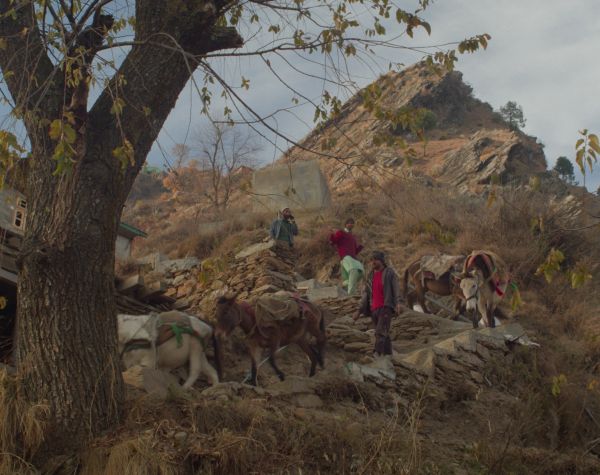
Only if the Baby Cries...
The hearing-disabled village of Dhadkai at the foothills of the Himalayas has been perplexing experts. It is not clear why only people with disabilities are born here. Yet locals drum and whistle to see if a newborn can hear and produce sound. This sensory-saturated observational portrait of a community amidst a majestic landscape raises the question of whether we need words to connect to the world around us.“According to the village´s beliefs and experiences, if the newborn cries loudly but keeps its eyes closed for the first two days, it might be deaf.”
director: Shadab Farooq
original title: Only if the Baby Cries...
country: India
year: 2024
running time: 14 min.

Pyramid
A dazzling pyramid made of sugar cubes has been created next to the entrance to the underground realm of forest ants at the base of a tree. It has become an object of interest to the surrounding myrmecofauna and other occasional visitors from insect circles. Captured in thirteen chapters, the disintegration of the white structure is recorded by a camera with a macro lens focused on the gradually emerging structure created by the ants’ drudgery.
director: Matěj Smetana
original title: Pyramida
country: Czech Republic
year: 2024
running time: 17 min.

Ruvja and Morena
This intimate portrait of a girl's friendship for the ages stretches the interval between childhood and adulthood, play and seriousness, reality and fiction. In this edited documentary, photographs from domestic archives are interwoven with camera-less animation. The flow of images is carried along by a lazily flowing river, which the protagonists eventually dive into due to the hot weather.
director: Julie Slovenčíková
original title: Ruvja a Morena
country: Czech Republic
year: 2024
running time: 6 min.

The Impossibility
The director Tomáš Hlaváček is loosely building upon the time-lapse documentary Housing Against Everyone, in which he captured the dispute surrounding the Rapid Re-Housing project in Brno. The topic of decent housing for families in need is also addressed in The Impossibility. People occupying rental apartments in Brno's “Kuncovka” wanted hot water, electricity and fair negotiations. Instead, they received bullying and threats from the owner, who, in his own words, “does not like coloured people”. Neither the police nor the city helped them. So they joined forces with activists and lawyers to fight for their rights. Hlaváček chronicles the months-long conflict with its legal follow-up as an engaged observer. "When I first set foot in that house, I came roughly against the gap between theoretical understanding and the real experience of extreme poverty and inequality that plunges the lot of the inhabitants into lived hopelessness. I observed a space where defending one’s own rights, let alone human dignity, is so expensive and dangerous that claiming it is tantamount to existential endangerment of self and family. At Kuncovka, I learned that to be poor is to become a commodity of abuse that no one wants to hear, because poverty is itself a guilt. It wasn’t a matter of just turning my head and pretending that this world didn’t exist." - Tomáš Hlaváček
director: Tomáš Hlaváček
original title: Dům bez východu
country: Czech Republic
year: 2024
running time: 146 min.










